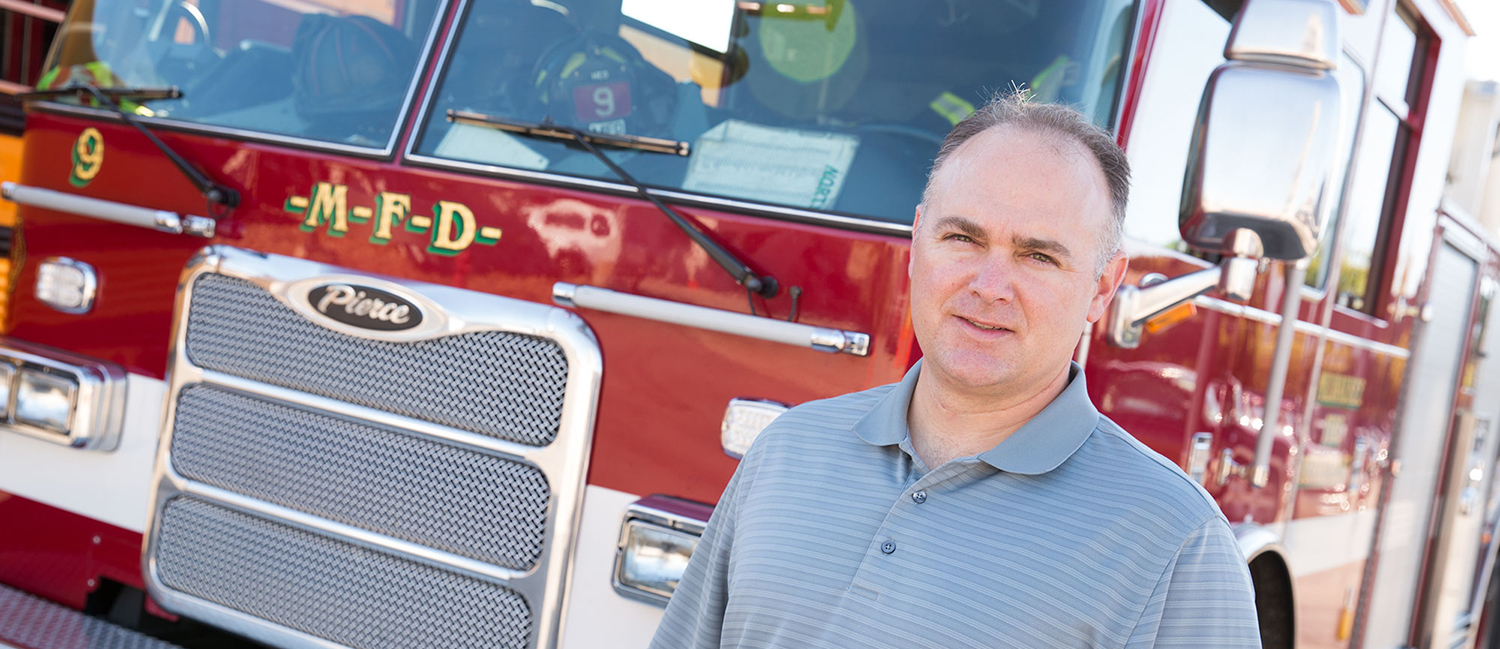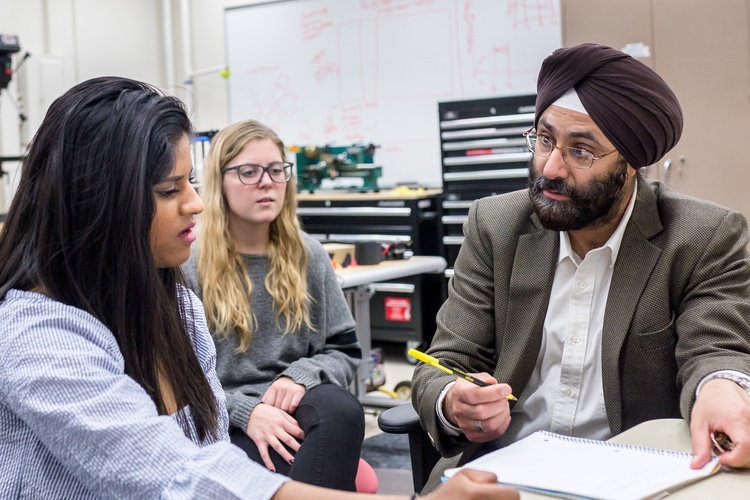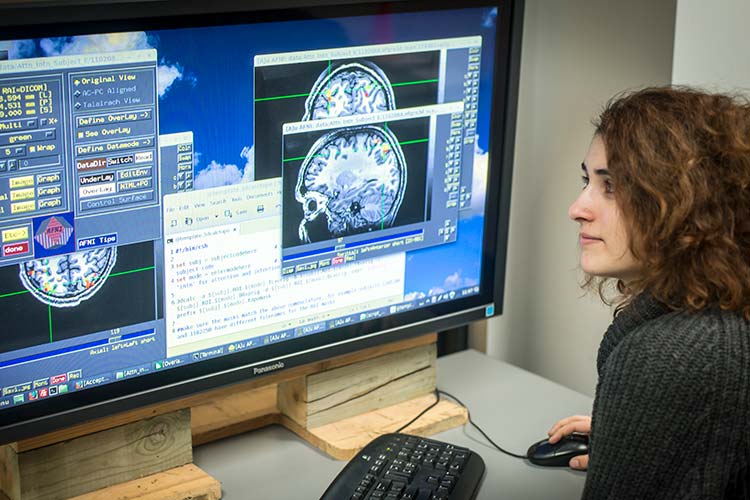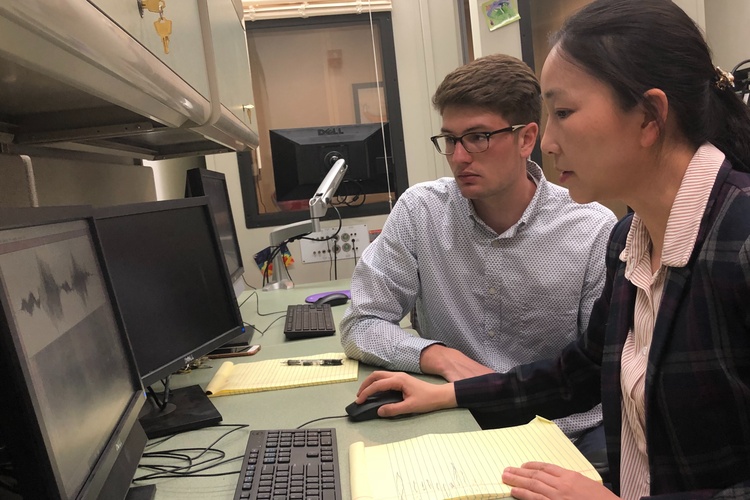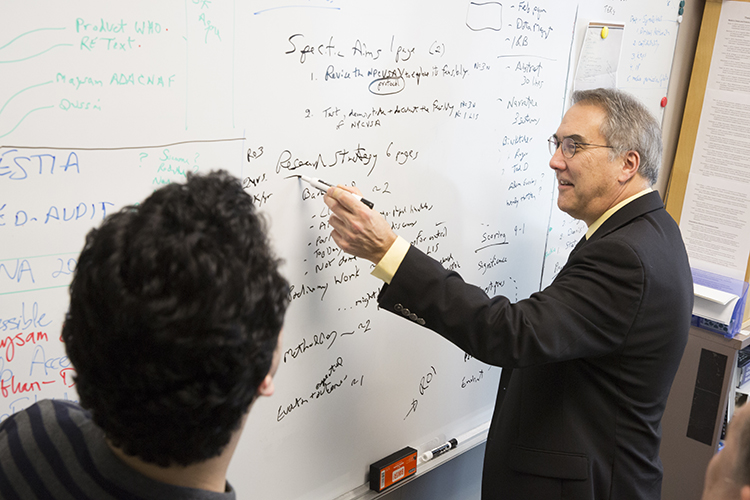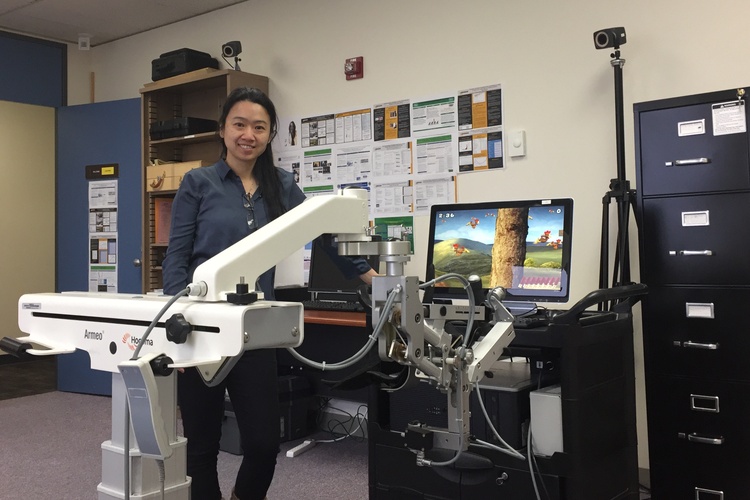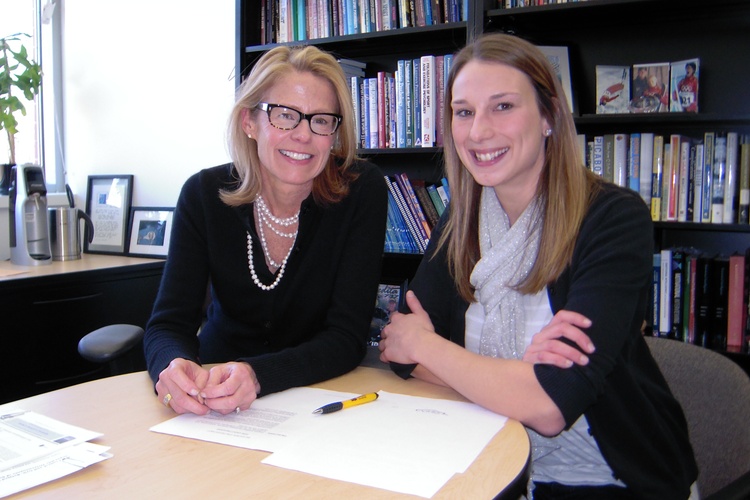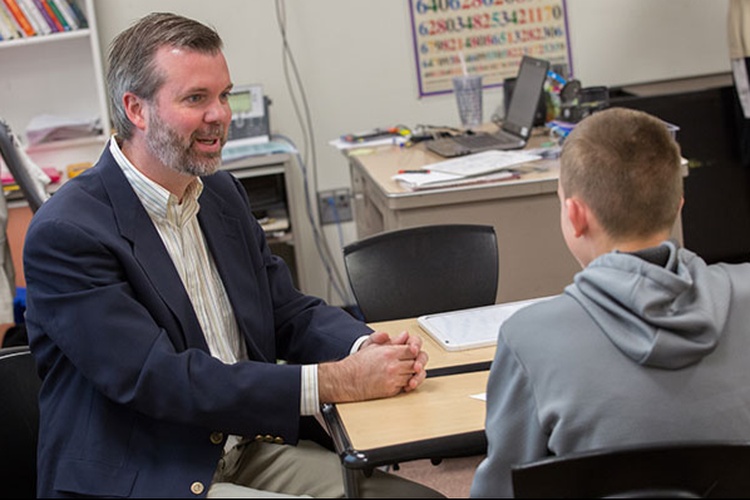Research
Fulfilling its research mission daily, the School of Rehabilitation Sciences & Technology has one of the most robust scientific research operations at the university.
Many of our faculty, staff and students work in research and instructional laboratories and research centers.
Their work encompasses groundbreaking and pioneering investigations, including vital advances in movement sciences, ingenious rehabilitation research and development, innovative applied technologies and novel disease prevention approaches.
Innovative Research
The School of Rehabilitation Sciences & Technology is doing exciting research that is making a difference in the lives of people in Wisconsin and world. Some of the conditions our faculty, staff and students are investigating are injury prevention and rehabilitation, motor development, pain physiology and assessment, physical activity and aging, and voice and speech disorders.
Additional work is being done in accessible design, applied sport psychology and ergonomics.
Community Research
The School of Rehabilitation Sciences & Technology is doing cutting-edge research that is making a difference in the lives of people in Wisconsin and the world. Some of the diseases and conditions our faculty, staff and students are investigating:
- Accessible design
- Applied sport psychology
- Injury prevention and rehabilitation
- Ergonomics
- Military and tactical athlete performance
- Motor development
- Pain physiology and aging
- Voice and speech disorders
Research Partnerships
- The school is a sponsoring member of Center for Urban Population Health. CUPH’s mission is to conduct and facilitate original population health research and educational initiatives that improve the health of urban communities through collaboration with academic and community organizations.
- The Rehabilitation Research Design and Disability (R2D2) Center performs discovery, innovation, training and dissemination activities around technology and disability. Its projects focus on universal design, measurement and outcomes and assistive technology.
- Many Rehabilitation Sciences & Technology faculty are research partners of the Clinical and Translational Science Institute. CTSI was founded in 2008 as a regional academic-community partnership among four area academic institutions (Medical College of Wisconsin, University of Wisconsin-Milwaukee, Milwaukee School of Engineering and Marquette University), three hospitals (Froedtert Hospital, Children’s Wisconsin and Zablocki VA Medical Center); and Versiti Blood Center of Wisconsin. It aims to develop an integrated, shared home for clinical and translational research, education and training, hallmarked by a borderless, collaborative, synergistic and investigator/community/patient-friendly environment.
